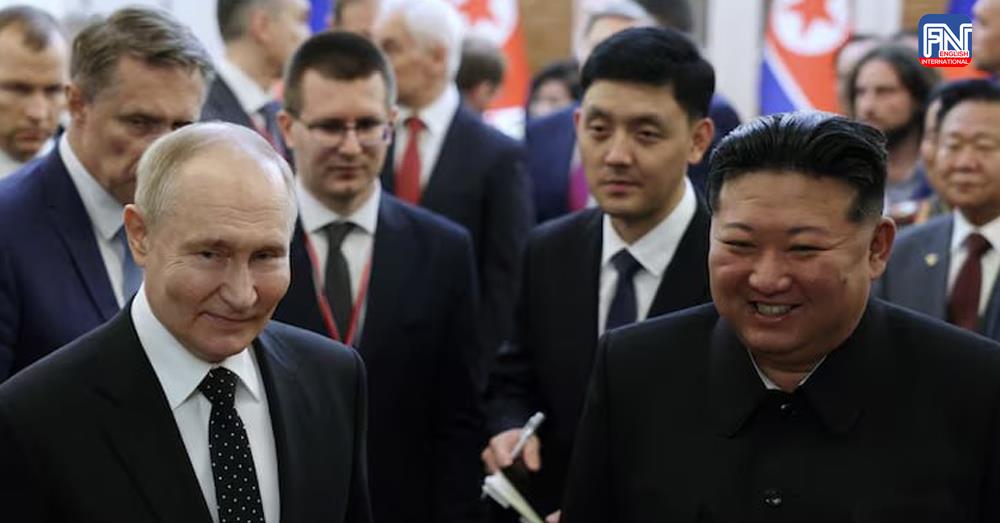WASHINGTON, Jun. 20 (Reuters) - Russian President Vladimir Putin's comments on Thursday that Moscow may supply weapons for North Korea after signing a defense pact with Pyongyang are "incredibly concerning," U.S. State Department spokesperson Matthew Miller said.
Putin suggested after a visit to North Korea this week that weapons supplies to the isolated nuclear-armed country would be a mirror response to the Western arming of Ukraine.
He also warned that U.S. ally South Korea would be making "a big mistake" if it decided to supply arms to Ukraine, and that Moscow would respond to such a move in a way that would be painful for Seoul.
"It is incredibly concerning," Miller told a news briefing when asked about Putin's remarks about possible arms supplies to North Korea.
"It would destabilize the Korean Peninsula, of course, and potentially ... depending on the type of weapons they provide, might violate U.N. Security Council resolutions that Russia itself has supported."
The pact signed by Putin and North Korean leader Kim Jong Un on Wednesday commits each side to provide immediate military assistance to the other in the event of armed aggression against either one of them.
White House national security spokesperson John Kirby called it a cause of concern, but no surprise. He said Russia's need for such foreign assistance was a sign of desperation.
"We've been talking about this and warning about a burgeoning defense relationship between these two countries now for many months through a series of downgraded intelligence that we've put out there," he said.
"Obviously it's something we've taken seriously."
The head of NATO said on Tuesday he was concerned about support Russia could provide for North Korea's missile and nuclear programs.
U.S. officials have said they believe North Korea is keen to acquire fighter aircraft, surface-to-air missiles, armored vehicles, ballistic missile production equipment or materials, and other advanced technologies from Russia.
The United States and Ukraine say North Korea has already provided Russia with significant quantities of artillery shells and ballistic missiles, which Moscow and Pyongyang deny.
Western countries have condemned Russia for vetoing an extension of the mandate of a U.N. body charged with monitoring international sanctions on North Korea to which Russia remains a signatory.
Kirby said the U.S. also believed the Russia-North Korea pact would also be a concern to China, which the United States has urged to do more to reign in Pyongyang.
Analysts said the pact could undercut Beijing's leverage over its two neighbors and any heightened instability could be negative for China's global economic and strategic ambitions.
"Russia may give North Korea advanced military capabilities that could be very destabilizing," said Evan Medeiros, an Asia specialist in the Obama administration now teaching at Georgetown University.
"And number two, this relationship could give North Korea confidence in ways that encourage Kim Jong Un to act out. Maybe it could manifest in North Korea starting nuclear testing again," he said.
Kim last oversaw a nuclear test in 2017, prompting sanctions China and Russia signed up to, but the U.S. has said Pyongyang could test again at any time.
Republican Senator Lindsey Graham and Democratic Senator Richard Blumenthal said Putin's visit to North Korea was an additional incentive for the U.S. to formally designate Russia as a state sponsor of terrorism.
"This picture says it all," Blumenthal told a news conference, holding up a photo of Putin's welcome in Pyongyang.
The two senators have been pushing the legislation since 2022, but President Joe Biden's administration has said it does not feel that the designation is the most effective way to hold Russia accountable over Ukraine.
Moscow has told Washington that diplomatic ties would be badly damaged and could even be broken off if Russia were added to the list, which includes Iran, North Korea, Cuba and Syria.

Photo from Reuters